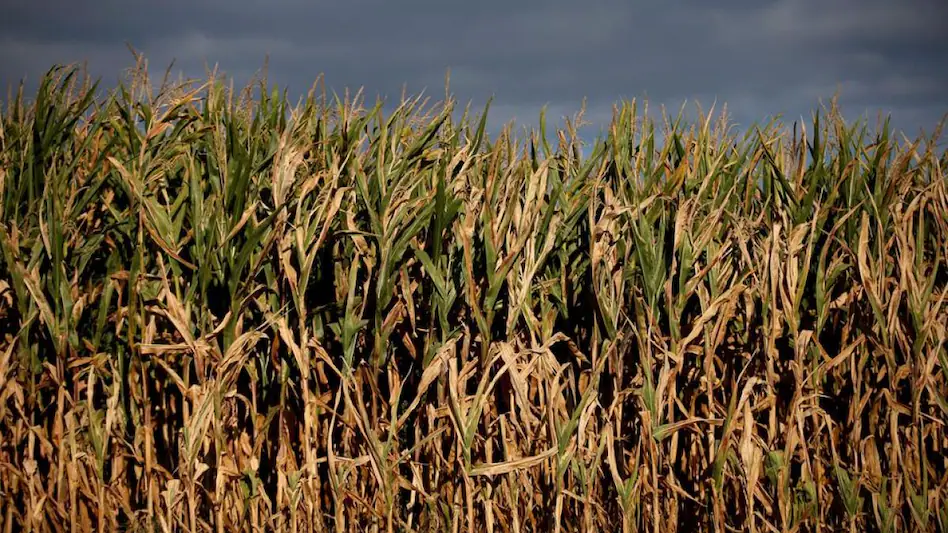UK (Parliament Politic Magazine) – UK farmers have issued a warning regarding the negative impact of the cool and wet summer on the harvests of various crops, including wheat, oilseed, and potatoes. This has raised concerns about potential food price inflation.
The UK experienced its wettest July on record in certain areas, which has compounded the problem of rising prices for essential ingredients on the global market. The ongoing conflict in Ukraine and unpredictable weather patterns affecting harvests from southern Europe to China have contributed to this issue.
Price Index For Rice Has Reached Highest Level
In July, the cost of wheat saw its first monthly increase in nine months, as reported by the UN Food and Agricultural Organization. This rise can be attributed to the uncertainty surrounding Ukrainian grain exports following Russia’s decision to terminate the Black Sea grain deal.
This agreement had previously ensured the safe shipment of grain from Ukraine’s seaports. Russia’s subsequent attacks on Ukrainian port infrastructure in the Black Sea and River Danube further pushed up international wheat prices by 1.6% last month, according to the UN food price index.
Furthermore, the price index for rice reached its highest level in nearly 12 years in July, with a 2.8% increase in just one month, according to the UN. This surge occurred after India banned the export of non-basmati white rice on July 20th.
The aim of this ban was to control domestic food inflation following heavy rainfall that damaged crops in the world’s largest exporting nation. In China’s Heilongjiang region, also known as its “great northern granary,” floods have submerged farms and devastated crops.
Farmers Are Facing A Lot of Challenges
These developments highlight the challenges faced by farmers and the potential impact on food prices. It is crucial to monitor these situations closely to ensure the stability of the agricultural sector and mitigate the effects of rising prices on consumers.
This could present a greater challenge for central banks in their fight against inflation. The Bank of England recently issued a warning that UK households would continue to struggle with high food prices, with inflation expected to remain in the double digits well into next year. This is due to processors being burdened by costly energy contracts.
Feargal Shortall, the Bank’s director for monetary analysis, stated that based on feedback from farmers, distributors, and food manufacturers, food inflation, currently at 17%, is unlikely to drop below 10% by the end of the year. These industry professionals have reported that their own costs are rising rapidly.
Weather Conditions Impact Crop Quality
The delays and inclement weather conditions are negatively impacting crop quality. Over-ripe or storm-damaged oilseed pods are shattering and losing their seeds, barley heads are breaking off, and potatoes are rotting or becoming susceptible to blight.
According to the government-backed Agriculture and Horticulture Development Board, oilseed yields, one of the earlier crops to be harvested, are averaging 3 tonnes per hectare. This is lower than usual due to a shorter flowering period caused by dry and warm weather in the spring, as well as storm and pest damage.
James Peck, who operates PX Farms across 12,500 acres in Cambridgeshire and Lincolnshire, growing a variety of crops including oilseed, oats, and wheat, anticipates a harvest of oilseed that is approximately one-fifth lower than expected due to hail damage and delays.
Read More: No Cut until In Interest Rates Until ‘Solid Evidence’ Price Rises Slow Down
Wheat Crops Are Flattened By Heavy Rains
Additionally, some of his wheat crops have been flattened by heavy rains, while the dry June has stunted grain growth, resulting in harvests in Cambridgeshire being down by as much as 25%. Peck expressed that the current weather conditions are what they needed earlier in the year.
Matt Culley, the Chair of the National Farmers‘ Union’s combinable crops board, expressed concern over the impact of harvesting damp crops on farmers’ profits. He highlighted that many farmers were forced to harvest these crops prematurely to prevent them from becoming over-ripe and damaged, resulting in a drop in price due to failure to meet the promised quality standards.
Culley emphasized that this year could potentially be a break-even year for farmers, given the soaring input costs. Fertilizer costs have reached unprecedented levels, and there has been a significant increase in expenses related to diesel, labor, and machinery. Additionally, the prices of parts and spares have skyrocketed, further burdening farmers financially.


